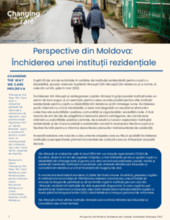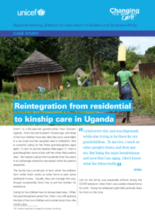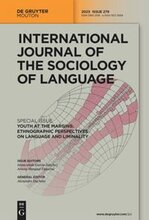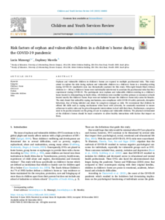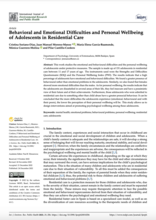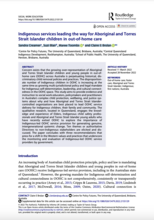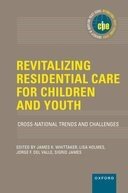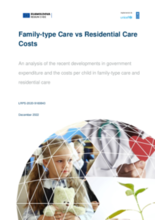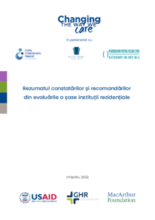Displaying 81 - 90 of 1510
După 60 de ani de activitate în calitate de instituție rezidențială pentru copii cu dizabilități, Școala-Internat Auxiliară Hîncești (SIA Hîncești) din Moldova și-a închis, în cele din urmă, ușile în mai 2022. Închiderea SIA Hîncești și reint
This case study details the experience of Attim, a 54-year-old grandmother from Eastern Uganda who provides care for her grandchildren after they left residential care. Social workers in Uganda often find that placement with extended family members is the most appropriate option for children leaving residential care.
This article examines how language, liminality, and social marginalization converge in the institutional lives of two displaced children in Angola. A displaced child is very likely to be placed into institutionalized care, which in Angola exists in the form of centros de acolhimento, residential centers that house minors affected by orphanhood, poverty, displacement, or abandonment. Drawing on one year of ethnographic research in two residential centers, the article argues that despite being sites of care and protection, some children come to desire living on the street as a byproduct of persistent marginalization and forms of liminality in the institutions.
This study aimed to explore the risks facing orphans and vulnerable children in a children’s home in a township setting during COVID-19 in Johannesburg, South Africa.
This paper studies the emotional and behavioural difficulties and the personal wellbeing of adolescents under protective measures in Spain.
This is a recording of a UNICEF webinar presenting the launch of a global database of children in residential care on December 14, 2022.
Related content:
This study aims to provide evidence and instruction to social work educators, policymakers and practitioners
in Australia’s child protection, wellbeing, and justice systems about why and how Aboriginal and Torres Strait Islander controlled organizations are best placed to lead out-of-home care service delivery for Indigenous children, their family and community.
The authors review data about LGBTQIA+ youth in care and describe two European programs that are striving to provide a secure, welcoming, and affirming living environment for LGBTQIA+ youth in child welfare systems.
The objective of this analysis is to provide a better understanding of the government spending towards foster care and residential care services for children deprived of parental care, as well as to estimate the cost per child of such services. The analysis is intended to support UNICEF advocacy efforts towards the closure of residential care institutions in Moldova.
În 2021-2022, CTWWC în parteneriat cu trei organizații ale societății civile: Keystone Moldova, Copil, Comunitate, Familie (CCF Moldova) și Asociația Parteneriate pentru Fiecare Copil (P4EC), a realizat o serie de cercetări la nivel național, inclusiv evaluarea complexă a șase instituții rezidențiale (IR).

